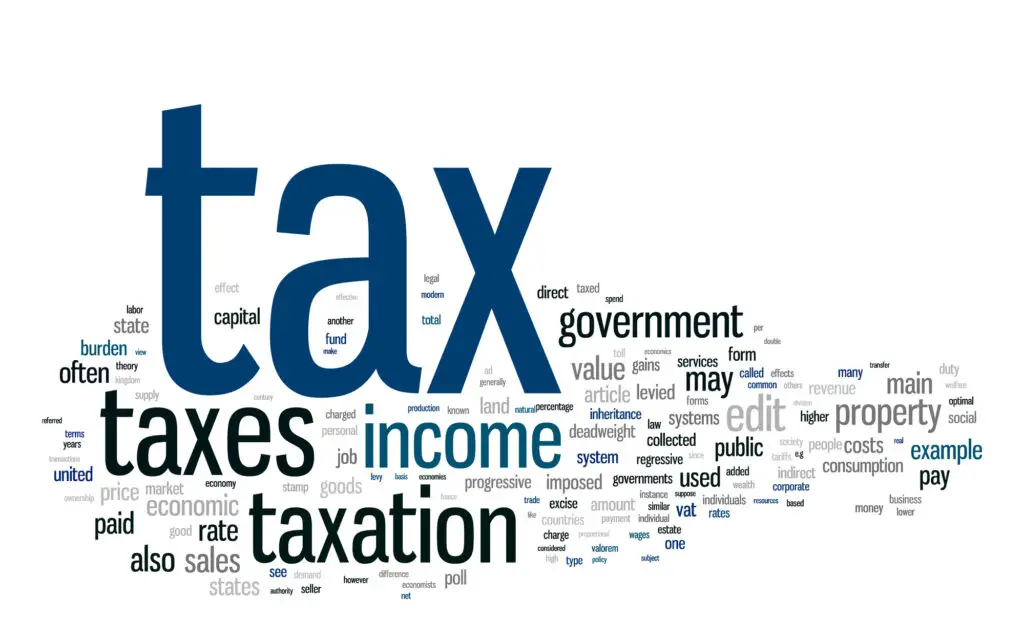 A deficit occurs when the federal government’s spending exceeds its revenues. The federal government has spent $1.06 trillion more than it has collected in fiscal year (FY) 2024 (as of May 1, 2024), resulting in a national deficit. When governments—federal, state, and local—experience deficits, their typical go-to strategy is raising revenue. It’s rare they address the deficit by cutting expenses. Some recent proposals to increase taxes could hit small business owners. Here’s what to watch out for:
A deficit occurs when the federal government’s spending exceeds its revenues. The federal government has spent $1.06 trillion more than it has collected in fiscal year (FY) 2024 (as of May 1, 2024), resulting in a national deficit. When governments—federal, state, and local—experience deficits, their typical go-to strategy is raising revenue. It’s rare they address the deficit by cutting expenses. Some recent proposals to increase taxes could hit small business owners. Here’s what to watch out for:
Exit tax
A significant number of businesses—large and small—are moving from high tax/high regulatory states to low tax/low regulatory states. They’re leaving California and New Jersey for Florida, Tennessee, and Texas. BuildRemote.co has a database of companies that have moved out of California since 2020 and where they’ve relocated to. California is facing serious deficits and has proposed one last shot at individuals and businesses that depart.
California’s exit tax. This would be a one-time tax of 0.4% on the value of business or individual assets (essentially a wealth tax as explained next). It would apply if income from business, investments, or otherwise in the year of departure is over $30 million ($15 million for married persons filing separately). It would apply to departing residents, regardless of whether they move to another state or abroad. And it would be levied on worldwide assets (other than realty in California). The proposed exit tax (AB 259) is being justified on the grounds that the state invested in people and businesses. The tax would begin to apply on January 1, 2026. But if enacted, there’s sure to be legal challenges on the grounds it violates the Commerce Clause of the U.S. Constitution. While this tax would initially be aimed at the ultra-rich, if it proves to be legal, California could drop the threshold and easily ensnare small business owners who leave the state in the future. Be very afraid.
Wealth tax
A proposal in Congress called the Ultra-Millionaire Tax Act of 2024 (H.R. 7749; S. 4017) would impose a tax on assets rather than on income. The tax would be:
- 2% annual tax on net worth of households and trusts between $50 million and $1 billion
- 1% annual surtax (3% overall tax) on the net worth of households and trusts over $1 billion
You may be thinking, “well, I’m no billionaire so it won’t affect me.” But is this really true?
- A successful small business can easily grow to be worth $50 million and an owner’s net worth would then be subject to this tax.
- What’s really scary about this tax is that it opens up a new way for the government to raise revenue. As I said, it’s not based on income, but on accumulated wealth. If enacted, it provides a basis for the government to impose a wealth tax on the less wealthy.
And, if a wealth tax proves to be successful, what would stop Congress from lowering the threshold to make moderately successful small business owners subject to the tax. Be very afraid.
Final thought
When our businesses are running at a loss (a deficit), we cut expenses and, if possible, increase income. When governments run at a deficit—spending more than they’re taking in, they raise taxes to get more revenue. They also issue bonds to raise money, creating the national debt ($34.7 trillion as of May 6, 2024, but check the U.S. Debt Clock for up-to-the second numbers). My opinion: the continuing deficit problem will play into Congressional negotiations on how to handle the tax rules set to expire at the end of 2025. There may be new, creative tax increases in the offing. We’ll just have to wait and see what happens.
Find additional blogs concerning small business taxes here.


